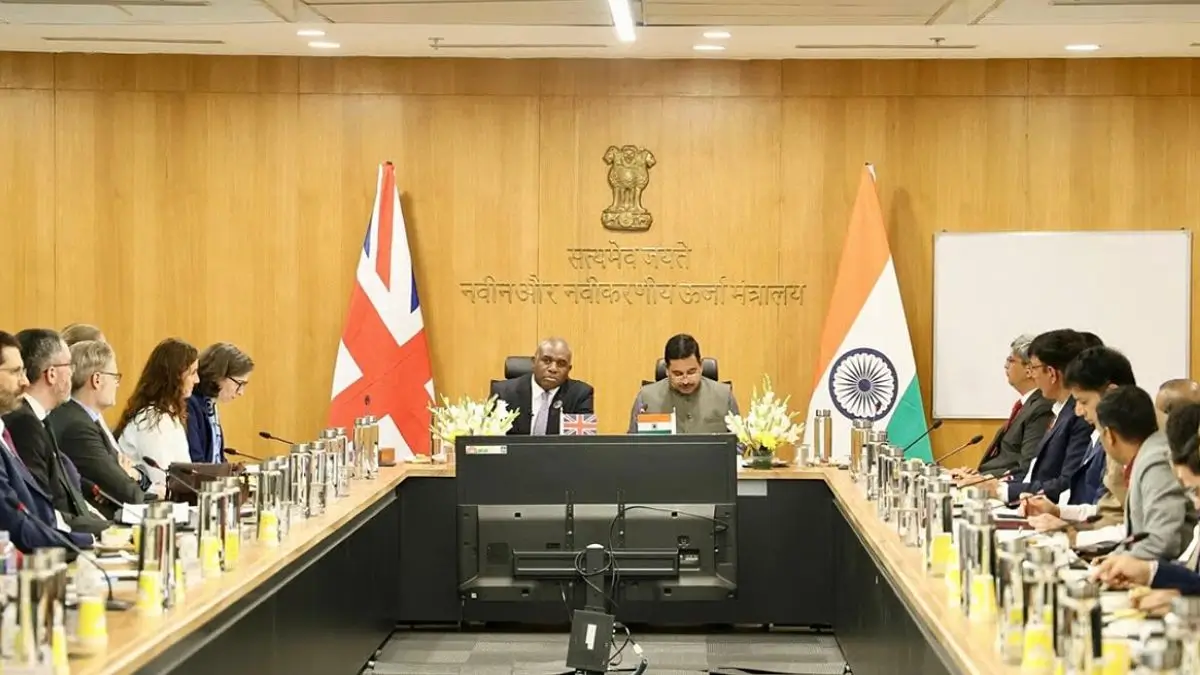India Announces Suspension of the Indus Waters Treaty
In a significant geopolitical move, India has announced the suspension of the Indus Waters Treaty (IWT) with Pakistan. This development comes amid escalating diplomatic tensions and reflects India’s strategic use of water resources as a tool of geopolitical leverage. The suspension indicates India’s growing discontent with Pakistan’s stance on multiple bilateral issues, including cross-border terrorism and its repeated opposition to Indian infrastructure projects in Jammu & Kashmir.
What is the Indus Waters Treaty?
The Indus Waters Treaty, signed in 1960 under World Bank mediation, is a water-distribution agreement between India and Pakistan that governs the usage of six rivers in the Indus system. According to the treaty, India was allocated control over the eastern rivers (Ravi, Beas, Sutlej), while Pakistan was granted rights to the western rivers (Indus, Chenab, Jhelum). Despite multiple wars and hostilities between the two nations, the treaty remained operational for over six decades, symbolizing a rare instance of peaceful cooperation.
Why is India Suspending the Treaty Now?
India has cited persistent Pakistani obstruction of Indian hydroelectric projects, like Kishanganga and Ratle, in Jammu & Kashmir as a violation of the spirit of the treaty. Additionally, Pakistan’s alleged support of cross-border terrorism has worsened bilateral ties. India has increasingly voiced its frustration over Pakistan’s refusal to engage meaningfully on key issues, viewing the treaty’s continuation as untenable under current circumstances.
Potential Impact on Pakistan
The suspension of the treaty could have serious agricultural and economic implications for Pakistan, as nearly 80% of its irrigated land depends on water from the Indus system. If India chooses to restrict water flow from the western rivers, Pakistan may face water shortages, affecting both food security and livelihoods. This move could also push Pakistan to approach international forums, including the World Bank and the International Court of Justice (ICJ).
Strategic Significance for India
India’s decision sends a strong message that it is willing to use every available diplomatic and economic tool to safeguard its national interests. The suspension aligns with India’s evolving foreign policy posture, which is becoming more assertive in response to regional threats. It also has implications for India’s water security strategy, particularly in border states like Punjab, Himachal Pradesh, and Jammu & Kashmir.

Why This News is Important
National Security and Foreign Policy Concerns
The suspension of the IWT reflects a major shift in India’s foreign policy strategy. For students of civil services, defence services, and other government positions, understanding such decisions is crucial for grasping India’s security and diplomatic priorities. This incident may serve as a key example in questions related to India-Pakistan relations, water diplomacy, or international treaties.
Implications for Environment and Agriculture
The decision is also a case study in interstate and international river water disputes, a recurring topic in exams for civil services, geography, and environmental studies. Since water is a critical resource for agriculture, any disruption in the Indus river system may trigger regional imbalances, impacting not only the environment but also economic and human development indicators in Pakistan.
Historical Context: Origins and Resilience of the Indus Waters Treaty
The Indus Waters Treaty was brokered in 1960 by the World Bank after bitter post-partition tensions. Despite three major wars between India and Pakistan (1965, 1971, and Kargil 1999), the treaty remained intact, often hailed as a model of conflict resolution. Pakistan had repeatedly raised objections in international forums about Indian projects, leading to arbitration by the World Bank in the past. India, while complying with treaty norms, has periodically voiced concerns about Pakistani misuse of international legal mechanisms to stall its infrastructure projects. The recent suspension marks the first instance of India signaling a potential exit or renegotiation of the treaty.
Key Takeaways from “Suspension of the Indus Waters Treaty”
| S.No. | Key Takeaway |
|---|---|
| 1 | India has suspended the Indus Waters Treaty with Pakistan after decades of compliance. |
| 2 | The treaty, signed in 1960, governs water sharing of the Indus river system between India and Pakistan. |
| 3 | Pakistan relies heavily on western rivers for irrigation and agriculture. |
| 4 | India cited terrorism and obstruction of infrastructure projects as reasons for suspension. |
| 5 | The move is significant for India’s water diplomacy and broader geopolitical strategy. |
FAQs: Frequently Asked Questions
1. What is the Indus Waters Treaty?
The Indus Waters Treaty is a water-sharing agreement signed in 1960 between India and Pakistan, facilitated by the World Bank, to govern the use of six rivers in the Indus basin.
2. Which rivers are covered under the Indus Waters Treaty?
The treaty includes three eastern rivers (Ravi, Beas, Sutlej) allocated to India, and three western rivers (Indus, Jhelum, Chenab) allocated to Pakistan.
3. Why did India suspend the Indus Waters Treaty?
India cited Pakistan’s obstruction of Indian hydroelectric projects and its alleged support for cross-border terrorism as the primary reasons for the suspension.
4. What could be the impact of the suspension on Pakistan?
Pakistan may face severe water shortages, especially for agricultural irrigation, since the country heavily relies on the western rivers governed by the treaty.
5. Has the treaty ever been suspended or violated before?
No. Despite wars and conflicts between India and Pakistan, the treaty had been upheld for over six decades until this recent suspension.
Some Important Current Affairs Links
















